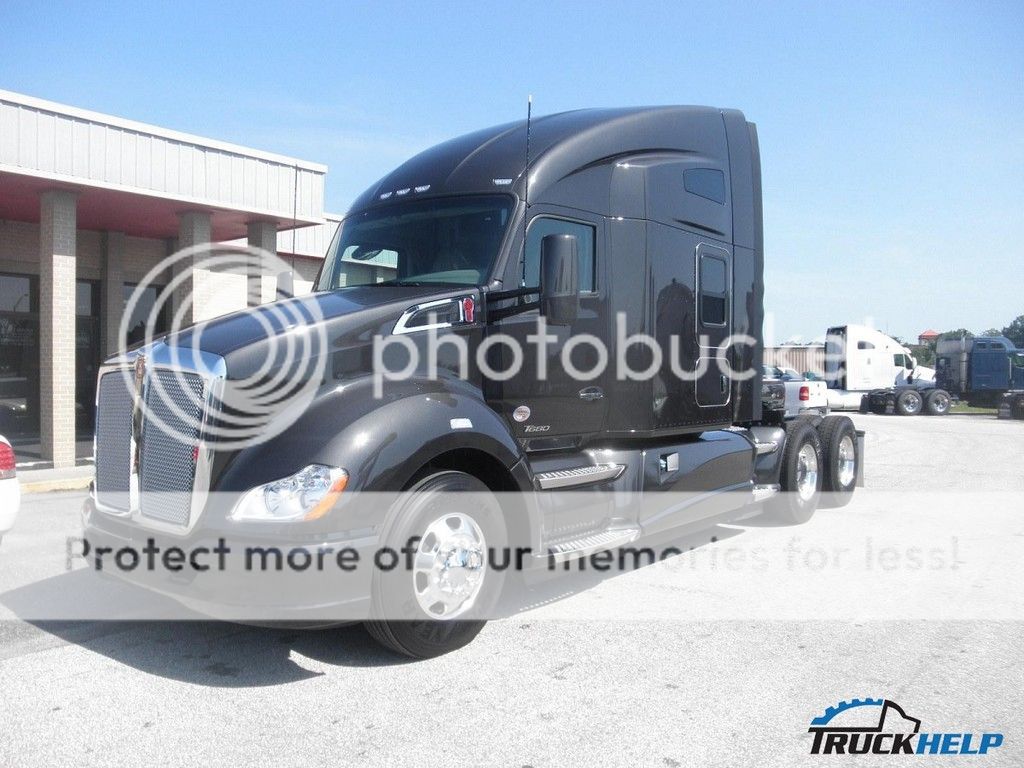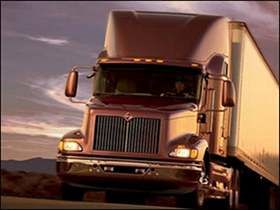Differences Between And Uses Of Drop Yards And Terminals
Topic 18355 | Page 1
Drop yards are usually for trailers. They're less expensive to maintain than a terminal. You can usually do your ten hour break at a company drop yard. You just might not have facilities.
Also, sometimes shippers have loads they want gone. You might haul it 300 miles and drop it at the yard. Maybe it doesn't deliver for three more days. You get paid the miles you took it and the company gets you another load to keep you moving. They'll get another driver to deliver that trailer.
I hope this helps.
Shipper:
The customer who is shipping the freight. This is where the driver will pick up a load and then deliver it to the receiver or consignee.
Terminal:
A facility where trucking companies operate out of, or their "home base" if you will. A lot of major companies have multiple terminals around the country which usually consist of the main office building, a drop lot for trailers, and sometimes a repair shop and wash facilities.

That really helps. Thanks Steve.
Drop yards range from privately owned property by your company, to a 3rd party company that allows you to use their facilities (truck and trailer repair places, tire repair places, truckstops, etc...), to a gravel or dirt lot that may or may not be fenced in.
The vast majority of the drop lots for my company are 3rd party businesses. pretty much the type of places I listed above.
Many times third party businesses will allow several different companies to use them. For example Best One Tire in Clarksville, TN. There are about 6 different companies I have seen in there. I am not sure if each particular company uses it or if individual drivers received permission. I know at least 3 companies, including mine, regularly have trailers sitting on the property.

Not sure where they have you starting, but I can say that the Appleton terminal is awesome. Instructors are all veteran OTR drivers. Use of Fox Valley Tech and the facilities there make it a huge bonus.
Terminal:
A facility where trucking companies operate out of, or their "home base" if you will. A lot of major companies have multiple terminals around the country which usually consist of the main office building, a drop lot for trailers, and sometimes a repair shop and wash facilities.
OTR:
Over The Road
OTR driving normally means you'll be hauling freight to various customers throughout your company's hauling region. It often entails being gone from home for two to three weeks at a time.

Mister B Be sure and let us know how you get along with Roehl. It's in the top tier of companies that I am interested in. The fact they have a drop yard in my hometown is pushing me towards them. I am willing to bet it might make the trip from my last stop until home time a paying trip every now and again. That and the fact you're a paid employee from day one might just make them edge out Prime.
One thing I did notice in your post is you never mentioned The High Road training aid for your permit. You do know at Roehl you need that before you show up? That is unless I am confusing them with a different company. Search for Roehl on TT reviews of company sponsored schools to confirm that.

Mister B Be sure and let us know how you get along with Roehl. It's in the top tier of companies that I am interested in. The fact they have a drop yard in my hometown is pushing me towards them. I am willing to bet it might make the trip from my last stop until home time a paying trip every now and again. That and the fact you're a paid employee from day one might just make them edge out Prime.
One thing I did notice in your post is you never mentioned The High Road training aid for your permit. You do know at Roehl you need that before you show up? That is unless I am confusing them with a different company. Search for Roehl on TT reviews of company sponsored schools to confirm that.
Thanks Bill, I am using HighRoad daily. I already passed my Permit test last week (yes, Roehl requires that permit). So the learning must continue. There are many rules I want to have memorized before I start training. I read that their training is intense and I don't want to be too "green" about the terminology. I'm making a transition from a completely different career with no transportation experience. So I'm taking all of this very seriously and am grateful they are taking a chance with me. I'm also in my 40's with a family that needs me to make this new career successful. I'm hoping to create a "training diary" here when I start. I'll be in Gary, IN on the National dry van fleet.
Dry Van:
A trailer or truck that that requires no special attention, such as refrigeration, that hauls regular palletted, boxed, or floor-loaded freight. The most common type of trailer in trucking.New Reply:
New! Check out our help videos for a better understanding of our forum features

















Preview:








 TT On Facebook
TT On Facebook
Well, I just signed my hiring letter to join Roehl's Get Your CDL Program. I'm scheduled to start on the 27th of February. So I'm doing some intense study of the company, CDL rules, Brett's book about trucking, etc. until I start. One thing that I'm not clear about is Drop Yards (versus Terminals). I have a vague idea about the difference between drop yards and terminals. I would like to know why a company needs Drop Yards versus terminals and what the differences are. I presume terminals are where your managers and dispatchers work. You can do administrative things there and have your truck worked on.
But Drop Yards? From what I've found in discussions, you just drop off your truck there. Possibly for home-time?
According to TT, Roehl has Drop Yards in the following cities:
Kansas City, MO South St. Paul, MN Prentice, WI Madison, WI Oak Creek, WI St. Louis, MO Bensalem, PA Springfield, MA West Memphis, AR Dayton, OH Cincinnati, OH Mogadore, OH Darlington, SC Jacksonville, FL
Terminals are located in: Fontana, CA Phoenix, AZ Iron Mountain, MI Marshfield, WI Appleton, WI Gary, IN Atlanta, GA Dallas, TX
CDL:
Commercial Driver's License (CDL)
A CDL is required to drive any of the following vehicles:
Terminal:
A facility where trucking companies operate out of, or their "home base" if you will. A lot of major companies have multiple terminals around the country which usually consist of the main office building, a drop lot for trailers, and sometimes a repair shop and wash facilities.
Dispatcher:
Dispatcher, Fleet Manager, Driver Manager
The primary person a driver communicates with at his/her company. A dispatcher can play many roles, depending on the company's structure. Dispatchers may assign freight, file requests for home time, relay messages between the driver and management, inform customer service of any delays, change appointment times, and report information to the load planners.Dm:
Dispatcher, Fleet Manager, Driver Manager
The primary person a driver communicates with at his/her company. A dispatcher can play many roles, depending on the company's structure. Dispatchers may assign freight, file requests for home time, relay messages between the driver and management, inform customer service of any delays, change appointment times, and report information to the load planners.OWI:
Operating While Intoxicated